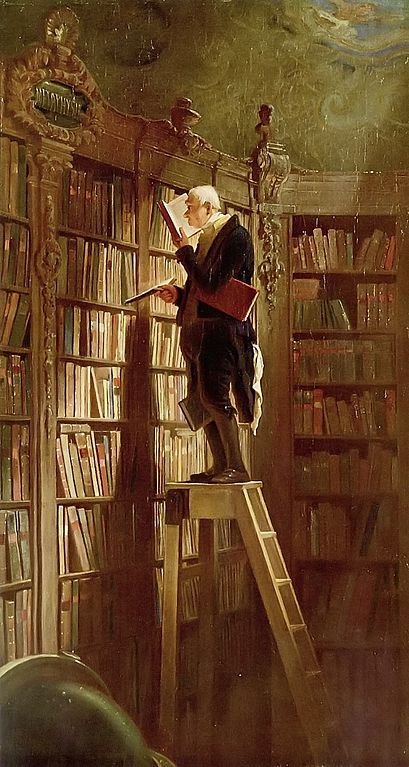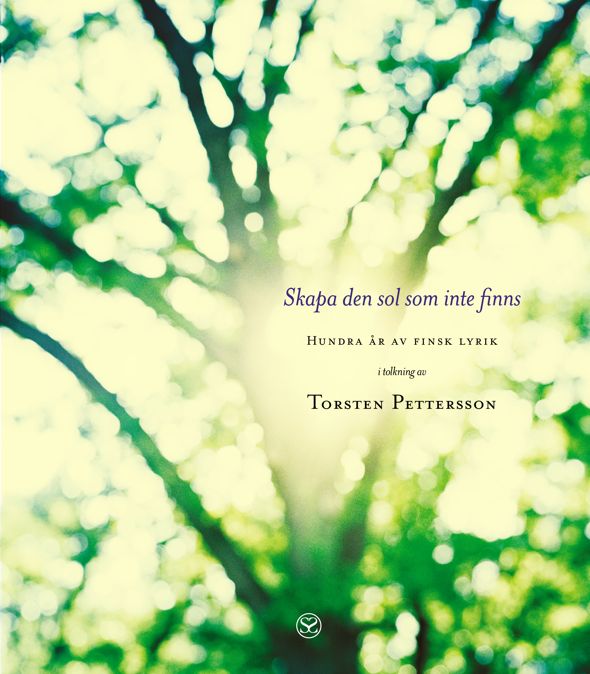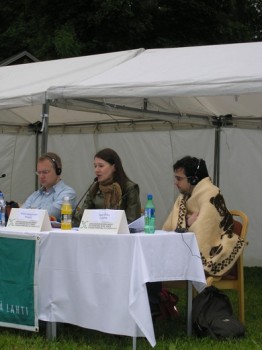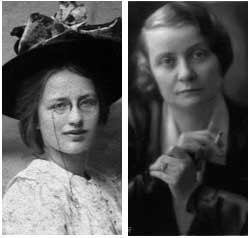Search results for "herbert lomas/www.booksfromfinland.fi/2004/09/no-need-to-go-anywhere"
Online, offline?
17 April 2014 | Articles, Non-fiction

‘The bookworm’ (old-fashioned) by Carl Spitzweg, ca. 1850. Museum Georg Schäfer. Photo: Wikimedia
Ebooks are not books, says Teemu Manninen, and publishers who do not know what marketing them is about, may eventually find they are not publishers any more
At least once a year, there is an article in a major Finnish newspaper that asks: ‘So, what about the ebook?’ The answer is, as always: ‘Nothing much.’
It’s true. The revolution still hasn’t arrived, the future still isn’t here, the publishers still aren’t making money. In Finland, the ebook doesn’t seem to thrive. The sales have stagnated, and large bookstores like the Academic Bookstore are closing their ebook services due to a lack of customers.
Why is Finland such a backwater? Why don’t Finns buy ebooks?
The usual explanation is that Finland is a small country with a weird language, so the large ebook platforms like Amazon’s Kindle and Apple’s iBook store have not taken off here. Another patsy we can all easily blame is the government, which has placed a high 24% sales tax on the ebook. If that isn’t enough, we can always point a finger at the lack of devices and applications or whatever technical difficulty we can think of. More…
Utopia or dystopia?
15 October 2013 | This 'n' that
 ‘The fate of our societies lies in equity’, claims Martti Ahtisaari – winner of the Nobel Peace Prize in 2008 – in his foreword to a study entitled A recipe for a better life: Experiences from the Nordic countries (2013).
‘The fate of our societies lies in equity’, claims Martti Ahtisaari – winner of the Nobel Peace Prize in 2008 – in his foreword to a study entitled A recipe for a better life: Experiences from the Nordic countries (2013).
The study was compiled and written by Heikki Hiilamo and Olli Kangas with Johan Fritzell, Jon Kvist and Joakim Palme and published by Crisis Management Initiative (a Finnish, independent, non-profit organisation founded in 2000 by Ahtisaari, President of Finland from 1994 to 2000). It is available here.
‘The Nordic experience’ is presented in chapters dealing with the trustworthiness of the society, the role of the state, the amount of efficiency and inefficiency as well as the homogeneity of the Nordic societies and the social investments of these societies in their citizens.
(The Nordic countries consist of Denmark, Finland, Iceland, Norway and Sweden as well as their associated territories – with different levels of autonomy – the Faroe Islands and Greenland [Denmark] and Åland [Finland].)
‘"The Nordic enigma" is a successful marriage between hard-core competitive capitalism
and the pursuit of egalitarian policies’.
The study provides a concise summary of how these societies function with additional comments on the socio-historical development of independent Finland. It presents the reader with pros and cons, arguments and facts.
‘For some analysts the Nordic welfare state is a dystopia to be avoided at all costs....
It is simply argued that that the welfare state destroys the incentives to work.’
‘Despite their strong welfare states and heavy tax burdens – often said to be poison
to competitiveness – the Nordic countries are doing well in economic terms.’
The reader is indeed challenged to ponder the best recipes for a better life. Last but not least: how will the ‘recipes’ need to be adapted in the future?
Could you drop me a line?
31 March 2003 | Archives online, Fiction, poetry
Poems from Kirjoittamaton (’Unwritten’, WSOY, 2002). Introduction by Jukka Koskelainen
[Chekhov visits a French prostitute]
The room brightly lit like a library that stays open at night.
From the threshold onward, a scent of freshly cut damp grass
and resin. In the curtain swim black goldfish, gasping for air
and the carpet glows, all too red, a red carpet to hell.
The girl sits on the edge of the bed, her face
as expectant as a stuffed nightingale, stares inscrutably
at the guest, until the ice age his presence has brought
begins to melt a little around the edges. Drop by drop,
dripping. He takes his coat off, his shirt
but keeps the pince-nez on his nose. ‘Because without it,
I won’t be able to see you at all.’ The candle
smokes, hisses, even, if you listen to it up close.
On the wall next to the bed the guest’s shadow melts
into the girl’s. Then two horns appear on top of her head
and her shadow bursts into shaky laughter. Then she stops,
takes his mocking fingers into both her hands, kisses them
lightly and says, ‘Let’s do it quickly, and then you’ll just hold me quietly,
so I can tell you about my greatest dream.’
‘What is it,’ he asks, his hair entangled in hers. Now
there’s another scent in the room, the acrid odor of rails
made more intense by a hot summer’s day, and the girl
whispers: “That my two sisters and I could leave here
and go back to Paris. Home to Paris. Oh, Paris!” More…
The snake
31 March 1998 | Fiction, Prose
In this horror story by the Finland-Swedish author Kjell Lindblad (born 1951), a man believes he is wandering among art installations in an apartment block – but the reality he is experiencing turns out to be much more sinister. From the collection of short stories Oktober-mars (‘October-March’, Schildts, 1997)
I only noticed the poster on the notice board in the vegetarian restaurant because it was so obviously different from the rest of the colourful items there, with their large headlines offering everything from Atlantic meditation to Zen ping-pong, together with promises of a new and fulfilled life in harmony with the soul and the cosmos. Poster is perhaps an overstatement it was a white sheet of paper with an egg-shaped oval in the middle. Inside the oval there was a horizontal row of seven numbers. For some reason, perhaps because the row of numbers was the only information on the piece of paper, it stuck in my memory and when I got home I had a compulsive desire to find out if it was a phone number. So I dialled the number and a tape-recorded voice that could have belonged to a man but equally well to a woman, said:
‘We bid you welcome. Please don’t write down the address just memorise it….’ More…
A view to a kill
31 December 1997 | Archives online, Fiction, Prose
Extracts from the novel Klassikko (‘The classic’, WSOY, 1997). Pete drives an old Toyota Corolla without a thought for the small animals that meet their death under its wheels – or anything else, for that matter. Hotakainen describes the inner life of this environmental hazard with accuracy and precision
Pete sat in his Toyota Corolla destroying the environment. He was not aware of this, but the lifestyle he represented endangered all living things. The car’s exhaust fumes spread into the surroundings, its aged engine sweated oil onto the pavement, and malodorous opinions withered the willowherbs by the roadside. Granted that Pete was an environmental hazard, one must nevertheless ask oneself: how many people does one like him provide with employment? He leaves behind him a trail of despondent girlfriends who require the services of human relations workers, popular songwriters, and social service officials; during his lifetime, he spends tens of thousands of marks in automotive shops and service stations, on spare parts and small cups of coffee; he benefits the food industry by being a carefree purchaser of TV dinners and soft drinks. Pete is the perfect consumer, an apolitical idiot who votes with his wallet, the favorite of every government, even though no one seems interested in putting him to work, least of all himself. Every government, regardless of political power struggles, encourages its people to consume. Pete needs no encouragement, he consumes unconsciously, and one might ask: is there anything that he does consciously, the Greens and left-wingers would like him to? Does Pete make smart long-range decisions? Hardly.
On the bridge
30 June 1993 | Archives online, Fiction, Prose
From Saksalainen sikakoira (‘Schweinehund’, WSOY, 1992). Introduction by Tuva Korsström
From somewhere beneath the bridge – I still hadn’t managed to get across it, which may sound pathetic, or even ridiculous, unless you take into account my exceptional state of mind – or, rather, to one side, I heard a dragging, ominous grinding and rumbling. It stopped for a moment; then, after a short but clearly defined pause, there was a heavy splash. A snow-plough was emptying its load into the bay from the end of the pier. The mounds of snow sank deep into the black water; the tightly packed, sticky snow rose slowly to the surface in greyish-yellow blocks and clods; loose pieces of snow boiled and foamed in the eddies and melted before my eyes. My time was melting away, too, being junked, my remaining time… More…
The unicorn
30 September 1997 | Archives online, Fiction, Prose
A short story from Koira nimeltä Onni ja muita onnettomuuksia (’A dog called Lucky and other misfortunes’, Tammi, 1997)
Hilma was rattling her bars when Pirjo stepped into the ward. Once again, she was the only one awake. The three other old people were asleep, wheezing heavily through their toothless mouths, making the air thick with their breathing. Clutching the bars of her bed, Hilma clambered up to a sitting position and leaned her sparse hair against the side.
‘How are you doing with the medicine?’ Pirjo asked.
‘A mouse took it,’ Hilma said, fixing her with her eyes.
‘And you’re not at all sleepy,’ Pirjo sighed. More…
A small lie
30 June 1987 | Archives online, Fiction, Prose
A short story from Pieni valhe (‘A small lie’). Introduction by Marianne Bargum
The white cat had started to hate her.
Only half a year ago, Marja remembered, it had been playing with the hems of her robe, while she had passed the morning reading and drinking coffee. Right now it was staring relentlessly at her from the bookcase where it was ensconced: out of reach, she thought. Its stare was green and mean. At night it attacked her ankles; it lurked in the crevices of the apartment and when it heard her approaching steps it leapt past her, screaming, and crossed the room to the curtains or the table. The curtains fell, books crashed to the floor, the cat stared with its eyes opened wide, the pupils like narrow slits. She would lock the cat into the other room for the night, hear it mew and feel the door with its paws; she fell asleep only after the cat had calmed down. When she approached it during the day, stroked it and called its name, it looked at her, motionless, as if it had seen and known everything, and then she withdrew her hand, backed off, started behaving as if there wasn’t even a cat in the apartment. More…
Bombast and the sublime
17 January 2013 | Reviews
 Torsten Pettersson
Torsten Pettersson
Skapa den sol som inte finns. Hundra år av finsk lyrik i tolkning av Torsten Pettersson
[Create the sun that is not there. A hundred years of Finnish poetry in Swedish translations by Torsten Pettersson]
Helsinki: Schildts & Söderströms, 2012. 299 p.
ISBN 978-951-52-3034-8
€25, paperback
In the 1960s my mother sometimes used to amuse herself and us children by reciting, in Finnish, in our bilingual family, selected lines of verse from the half-forgotten poetry canon of her school years.
Eino Leino (died 1926) and the great tubercular geniuses Saima Harmaja, Uuno Kailas, Katri Vala and Kaarlo Sarkia (all dead by 1945) were familiar names to me as a child. Early on, I realised that their poetry was both profoundly serious and also slightly silly, just because of its high-flown seriousness. More…
Gorgonoids
31 March 1993 | Archives online, Fiction, Prose
From Matemaattisia olioita tai jaettuja unia (‘Mathematical creatures, or shared dreams’, WSOY, 1992). Introduction by Soila Lehtonen
The egg of the gorgonoid is, of course, not smooth. Unlike a hen’s egg, its surface texture is noticeably uneven. Under its reddish, leather skin bulge what look like thick cords, distantly reminiscent of fingers. Flexible, multiply jointed fingers, entwined – or, rather, squeezed into a fist.
But what can those ‘fingers’ be?
None other than embryo of the gorgonoid itself.
For the gorgonoid is made up of two ‘cables’. One forms itself into a ring; the other wraps round it in a spiral, as if combining with itself. Young gorgonoids that have just broken out of their shells are pale and striped with red. Their colouring is like the peppermint candies you can buy at any city kiosk. More…
Writing and power
15 October 2009 | This 'n' that

Speaking in the cold: the Chairperson of the Lahti Writers' Union, Jarmo Papinniemi (left), and the Bosnian writer Igor Štiks (right) listen to Riina Katajavuori's presentation
The theme of the biannual International Writers’ Reunion (LIWRE) which took place in Lahti, southern Finland, in June for the 24th time, was ‘In other words’.
The theme inspired the participants (54 in total, foreign and Finnish) to talk, among other things, about the power of the written word in strictly controlled regimes, about fiction that retells human history, about the difference between the language of men and women, about languages that have been considered – by those who rule, naturally – ‘better’ than other languages. Eleven presentations are available in English.
Speaking about the birth of her latest collection of poems, Kerttu ja Hannu (‘Gretel and Hansel’, 2007), the Finnish writer Riina Katajavuori described in her presentation the need to use other words. In her case they were those of poetry, in retelling a tale; here are some extracts (scroll down!). More…


